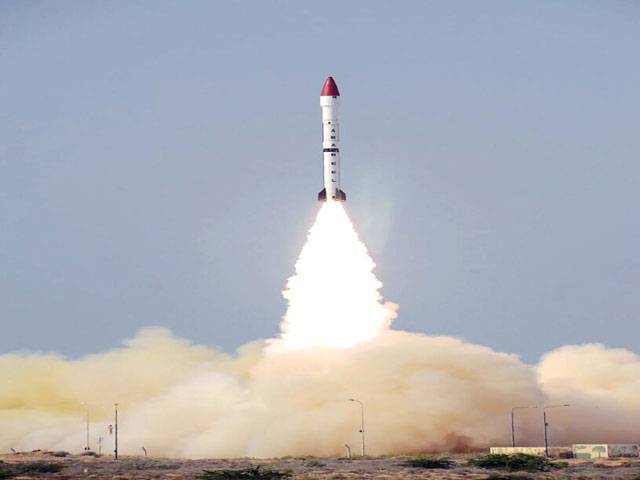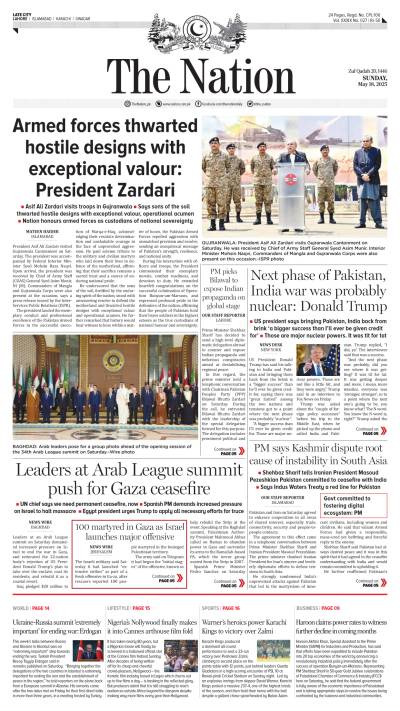ISLAMABAD - Pakistan on Tuesday conducted a successful test flight of new surface-to-surface ballistic missile — Ababeel — which has a maximum range of 2,200 kilometres.
According to the ISPR, the missile is capable of delivering multiple warheads, using Multiple Independent Re-entry Vehicle (MIRV) technology.
“The test flight was aimed at validating various design and technical parameters of the weapon system.”
According to the ISPR, Ababeel is capable of carrying nuclear warheads and has the capability to engage multiple targets with high precision, defeating the enemy’s hostile radars.
“The development of Ababeel weapon system is aimed at ensuring survivability of Pakistan’s ballistic missiles in the growing regional Ballistic Missile Defence (BMD) environment. This will further reinforce deterrence,” the statement said.
Chairman of Joint Chiefs of Staff Committee and services chiefs have congratulated the scientists and engineers on the successful conduct of the missile test.
The president and the prime minister conveyed their appreciation to the team involved and the armed forces of on this landmark achievement.
Reuters adds: Pakistan successfully tested a new nuclear capable surface-to-surface missile on Tuesday that is able to deliver multiple warheads and evade radar detection. It was Pakistan's second missile test in a month.
The Ababeel missile can reach targets at a range of 2,200 km, over three times the distance between Islamabad and New Delhi.
The test follows the firing of Pakistan's first submarine-launched cruise missile on January 10.
India last year tested a locally designed anti-ballistic missile system, according to media reports, which could in theory intercept a nuclear-carrying ballistic missile.
The latest missile tests are expected to fuel already heightened tensions between nuclear-powered neighbours Pakistan and India.
India's defence and foreign ministries in New Delhi declined to comment.
Last year, Pakistani officials had expressed serious concern about Indian anti-ballistic missile testing with Adviser to the Prime Minister on Foreign Affairs Sartaj Aziz telling the Senate that it could lead to the "nuclearisation" of the Indian Ocean.
Both countries have routinely tested ballistic missiles since they first became nuclear capable in 1998.






